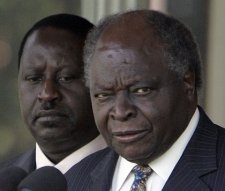By David Heller (Posted: January 30, 2009)
The Obama administration’s emphasis on transparency and public participation in government was echoed in a recent introductory memorandum that Lisa Jackson, the newly appointed administrator of the Environmental Protection Agency (EPA), circulated to her staff.
This commitment to access principles – a clear deviation from recent EPA precedent – will face an immediate test.
In the memo, Jackson describes her vision of how EPA, under her leadership, will uphold transparency and public participation in its work. As she says,
Public trust in the Agency demands that we reach out to all stakeholders fairly and impartially… and that we fully disclose the information that forms the bases for our decisions. I pledge that we will carry out the work of the Agency in public view so that the door is open to all interested parties and that there is no doubt why we are acting and how we arrived at our decisions.
Of particular interest to Jackson is soliciting input from marginalized, impoverished, and minority populations, whom as she says, “have been historically underrepresented in EPA decision making.”
This interest in improving external transparency is complemented by a hope for more inclusiveness within the EPA itself.
“As I develop my agenda,” Jackson informed her staff, “I will be seeking your guidance on the tasks that are most urgent in protecting public health and the environment and on the strategies that EPA can adopt to maximize our effectiveness and the expertise of our talented employees.”
Jackson is not the only EPA administrator who has sought to introduce transparency and participation in the agency’s actions.
In 1983, then-EPA administrator William D. Ruckelshaus released a similar in-house memorandum that outlined many related concepts.
Ruckelshaus famously spoke of his desire to have EPA operate “in a fishbowl.” His influential memo went on to say,
EPA will provide, in all its programs, for the fullest possible public participation in decision-making. This requires not only that EPA employees remain open and accessible to those representing all points of view, but also that EPA employees responsible for decisions take affirmative steps to seek out the views of those who will be affected by the decisions. EPA will not accord privileged status to any special interest group, nor will it accept any recommendation without careful examination.
But these principles did not permeate through all forthcoming EPA administrations. Stephen Johnson, EPA’s leader under G.W. Bush, was accused of repeatedly ignoring the scientific findings of agency scientists and relaxing standards for polluters.
This legacy of partisanship, combined with a shrinking budget (over the past six years, EPA’s budget has fallen by $1.3 billion, or 15 percent) and diminished authority over regulatory matters, has led many to question EPA’s credibility and whether or not it’s capable of fulfilling its environmental protection mandate.
Russell Trail, EPA administrator during the Nixon and Ford eras, has gone so far as to say that, “EPA has become a nonentity.”
Likewise, during Jackson’s Senate confirmation hearing, Barbara Boxer, chair of the Senate Environment and Public Works Committee, told Jackson “The EPA needs to be awakened from a deep and nightmarish sleep.”
Consider the alarm sounded, to the tune of a massive spending package with clear environmental implications. Contained in the stimulus bill just passed in the U.S. House of Representatives is a $151 billion infrastructure component, consisting of large scale transportation and construction projects. It’s up to EPA to oversee the monitoring of environmental impacts and mitigations of these allocations, and to diligently enforce environmental standards when violations arise.
Though weakened, our nation’s official environmental steward must not claim defeat. Instead, amnesia would be more appropriate, as the time is ripe for EPA to reemerge as a vigilant enforcer of environmental standards. Jackson must prove that she can lead her agency in consonance with the principles outlined in her memo and not fall victim to the flaws of her predecessor. If she can manage to do this, then not only will EPA re-gain some of what it has lost, it can help guarantee that transparency and public participation in environmental policymaking will be here to stay. It’s a win-win situation that Jackson ought to take advantage of, and that Mother Earth will thank her for.
Stay tuned for updates on how well Jackson’s EPA is upholding its commitment to access principles, as money for the stimulus bill is doled out.

